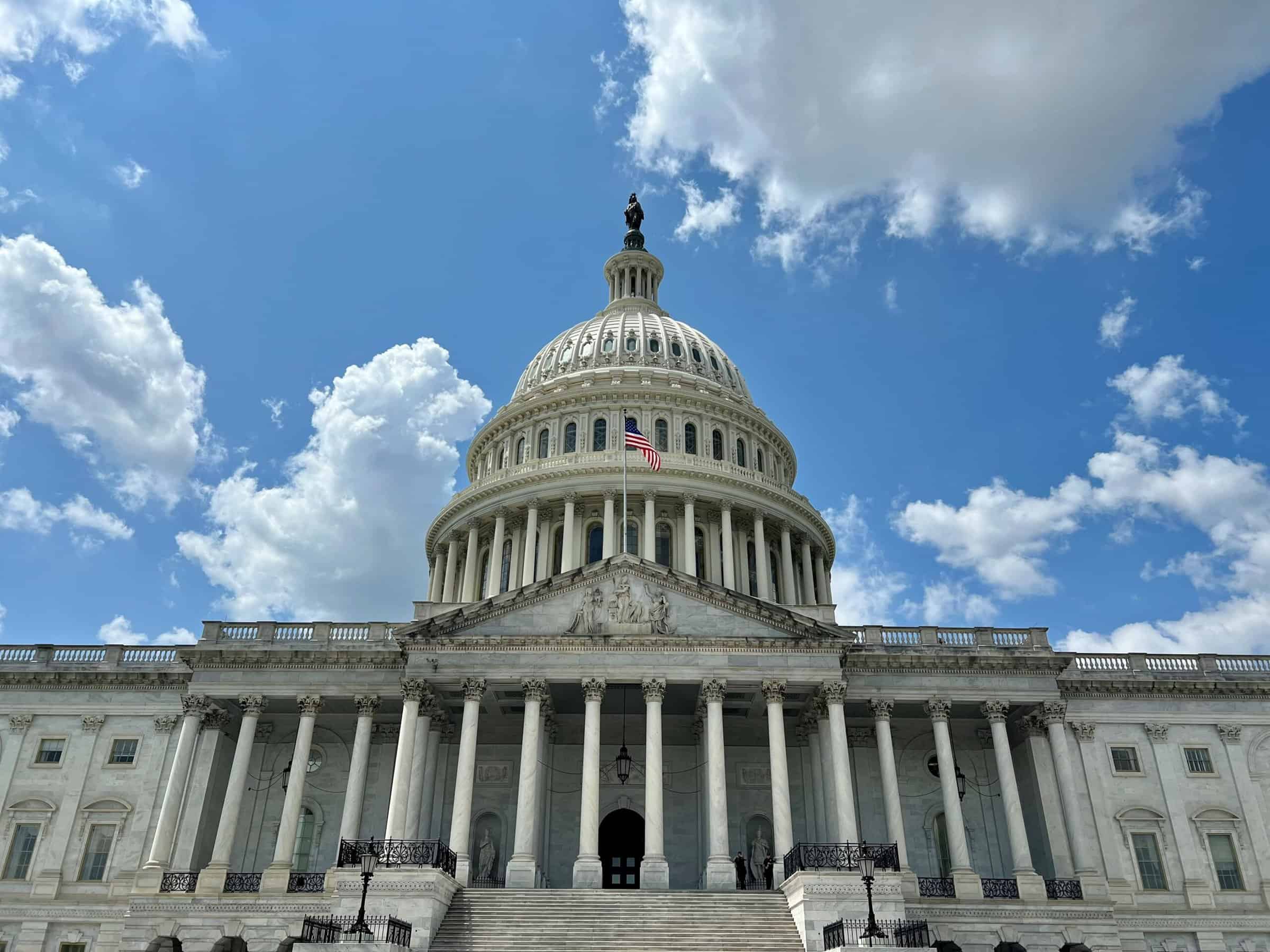
Government Funded after Record-Long Shutdown
After the longest shutdown in government history, a deal to re-open the government has finally been reached. Eight Senate Democrats broke with their party to come to a deal with the Republicans, ending the shutdown after 43 days.
The Senate passed the funding bill 60-40, and the House passed it two days later by a count of 222-209. Six Democrats voted for the bill in the House, although it would’ve passed in the House with Republican votes alone.
The deal funds the government until January 30th. It includes funds for SNAP and government agencies and guarantees that federal workers receive back pay. Democrats were holding out in hopes of guaranteeing an extension on expiring health insurance subsidies, but the best they got was the promise of a vote on the subsidies later (though the White House has now floated a potential two-year extension). It remains to be seen what will happen on the healthcare front, though there are rumblings of a healthcare package becoming a priority before the end of the year.
While the government is now funded, it will take some time for the specific government agencies to get fully up and running. For example, the FAA stated that it would increase air traffic capacity to 97% on November 15th and aims to return to 100% capacity by the end of the month. Overall, the deal gets the engine of government started again, at least until January of next year, when this argument will have to happen again.
Farm Bill Pushed to 2026
The long-awaited Farm Bill seems poised to be pushed into 2026 at the earliest. Members of the House are currently working through their backlog of unfinished work that wasn’t completed before the shutdown. This means that, with only just over a month left (not to mention a few major holidays), time is running out for something to be done this year.
“The clock’s starting to run down on us, it’s not that many legislative days left in 2025,” said Rep. Frank Lucas (R-Okla.), a House Agriculture Committee member and former chair.
“It remains to be seen just how legislatively focused we’re going to be for the remainder of this session of Congress,” Lucas added during a recent interview.
Another member, Rep. Randy Feenstra (R-Iowa) said he hopes to have something ready by mid-January. The Bill must first move out of the House, then the Senate. House Agriculture Committee Chair G.T. Thompson (R-PA) has said he hopes to get the Bill out of the House by Christmas, but, “I mean, that’s coming up quickly—we’ll see if we’re able to do that.”
If they aren’t able to, the process could run into the deadline for the next government funding bill in January, as mentioned above. This could push the Farm Bill even further down the pike, potentially into February, March, or even the summer.
WAGER Act Trending Positively
One of President Trump’s most prominent moves since returning to office has been the passage of the One Big Beautiful Bill Act (OBBBA), his big tax bill, on July 4th. As previously mentioned, the bill included several wins for the horse racing industry, namely 100% permanent bonus depreciation. It also included a bane for the industry – the decrease of the tax deduction on gambling losses from 100% to 90%. This change drew immediate criticism from the public as well as from lawmakers on both sides, mainly for the fact that this change would lead to gamblers potentially paying tax on “phantom income,” that is, income that the gambler didn’t actually earn.
Almost immediately, Rep. Dina Titus (D-NV) introduced the FAIR BET Act, and Rep. Andy Barr (R-KY) introduced the WAGER Act. Both of these bills will restore the tax deduction to 100%. As of now, the most likely bill that will pass is Barr’s, simply because of the fact that he’s a Republican in a Republican controlled House and Senate.
There has been more good news regarding the WAGER Act and restoring the tax deduction. First, House Ways and Means Committee Chairman Jason Smith (R-MO) has come out in support of restoring the deduction, and Senate Finance Committee Chairman Mike Crapo (R-ID) has indicated he’s supportive of a change as well. Having both of these leaders in favor of restoration is a good sign.
Another good sign is the fact that multiple congressmen have signed on as co-sponsors of the bill, including Democrats. Having bipartisan support is always helpful to get a bill passed.
Finally, the NTRA has launched a campaign supporting the passage of the WAGER Act, including an ad that ran during the Breeders’ Cup. More information on that campaign can be found here: Wager – NTRA


